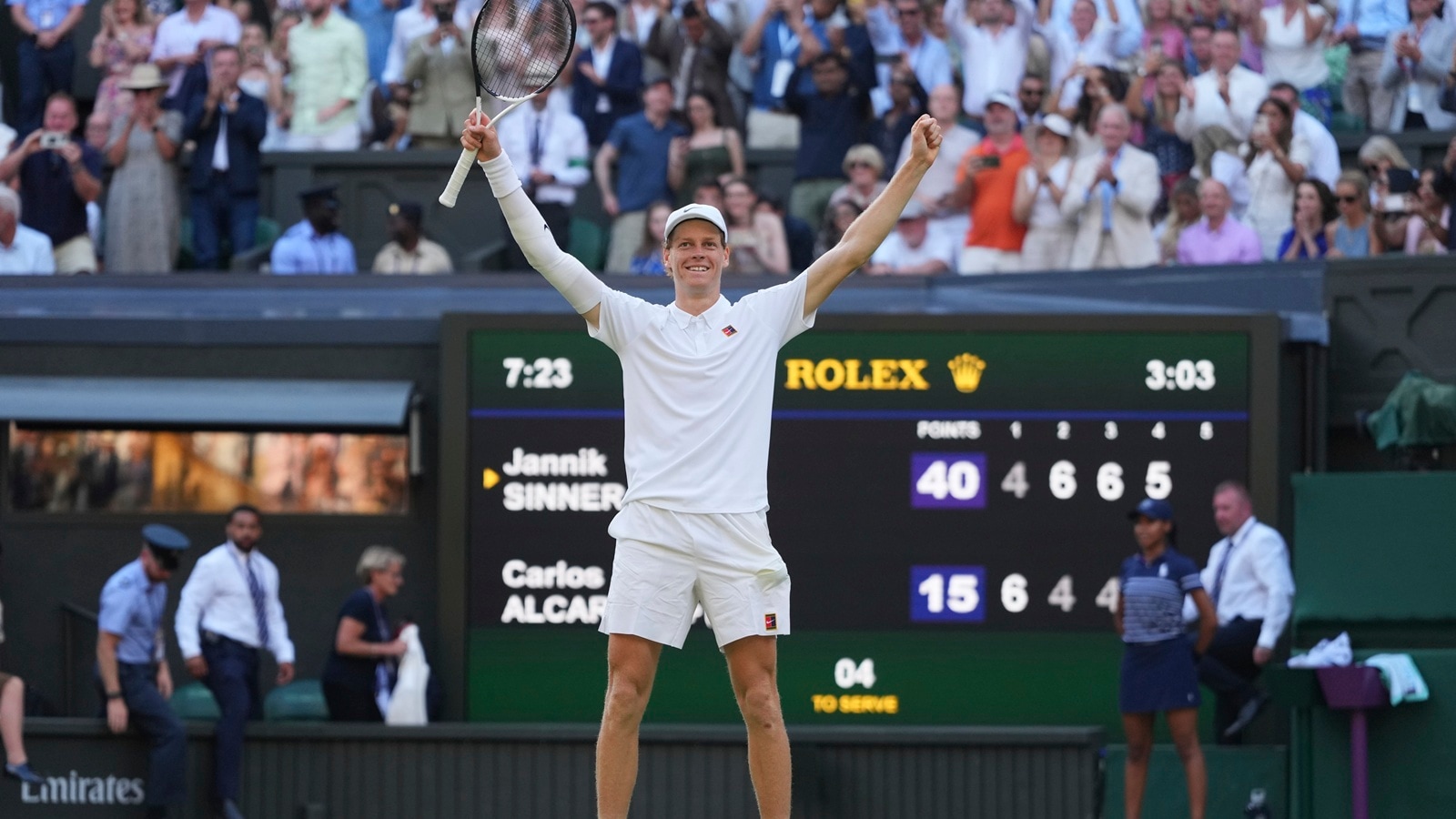Jannik Sinner Triumphs at Wimbledon, Secures First Title with Emotions Running High

In a gripping final that stretched nearly three hours, Jannik Sinner secured his first Wimbledon title, triumphing over Carlos Alcaraz with a score of 4-6, 6-4, 6-4, 6-4. Just five weeks prior, Sinner had faced a crushing defeat at the French Open where he squandered three championship points against Alcaraz, losing in five sets. Their rivalry was further intensified by Alcaraz's recent dominance, having won their last five encounters leading up to this monumental clash on the prestigious grass courts of Wimbledon.
As the match unfolded, Sinner exhibited his characteristic blend of power and precision, initially taking a 2-1 sets lead and even securing a break in the fourth set. However, the shadow of his previous setback loomed large as Alcaraz rallied, presenting Sinner with a double break point in the eighth game of the set. This moment echoed the tension of their previous meeting, and it was clear that Sinner was fighting not just against Alcaraz, but also against the memories of his past failures.
Throughout his rise in men’s tennis, Sinner has been recognized for his remarkable consistency and poise under pressure. Unlike many players, he rarely falters when the spotlight is on him, executing his game plan with near perfection. The bizarre turn of events at the French Open had raised questions about his mental fortitude, but Sunday’s match proved that it was merely an anomaly.
In the moments that mattered most, Sinner delivered his best serves, fending off Alcaraz’s late-game surge. Ultimately, he rounded out a well-deserved victory, becoming the first Italian to win the Wimbledon singles title—an extraordinary feat considering it was also his first Major title on grass. With this victory, Sinner now holds three out of the four Grand Slam titles, marking a significant milestone in his career. Moreover, he handed Alcaraz his first defeat in a Major final, a testament to Sinner’s rising dominance in the sport.
After the match, an emotional Sinner reflected on his journey, stating, “It’s mostly emotional, because I had a very tough loss in Paris. But at the end of the day, it doesn’t really matter how you win or how you lose at important tournaments; you just have to understand what you did wrong and try to work on that.” This sentiment captures the heart of a champion who has learned from his experiences and channeled that knowledge into his game.
Unlike their previous epic showdown in Paris, this final had a different rhythm—some might even describe it as a slow-burner. Sinner’s strategy was markedly better as he consistently kept Alcaraz under pressure during baseline exchanges. Alcaraz, known for his explosive play and ability to rise to the occasion, found himself struggling to maintain his rhythm, particularly in his forehand, which was uncharacteristically error-prone.
The match began with both competitors probing for weaknesses, but it was Alcaraz who seized the first set, utilizing his experience and skill during critical moments. Yet, Sinner quickly regained his composure, capitalizing on a crucial early break in the second set and showcasing impressive serving and clutch shots to level the match.
As the match progressed, Alcaraz faltered, with his first-serve success rate plummeting to 44 percent in the third and fourth sets. Meanwhile, Sinner seized control of the match, effectively employing a more aggressive approach than he had at Roland Garros. He approached the net more often than Alcaraz, doubling his attempts and achieving a higher success rate in finishing points.
Even when the pressure mounted in the fourth set, Sinner remained steadfast, showcasing the resilience that defines his game. The ability to bounce back from a prior humiliation to clinch his biggest career triumph against the same opponent in such a short span is a remarkable achievement. As the match concluded, the emotional weight of his victory was palpable, highlighting the journey of a player who embodies determination and skill.
























